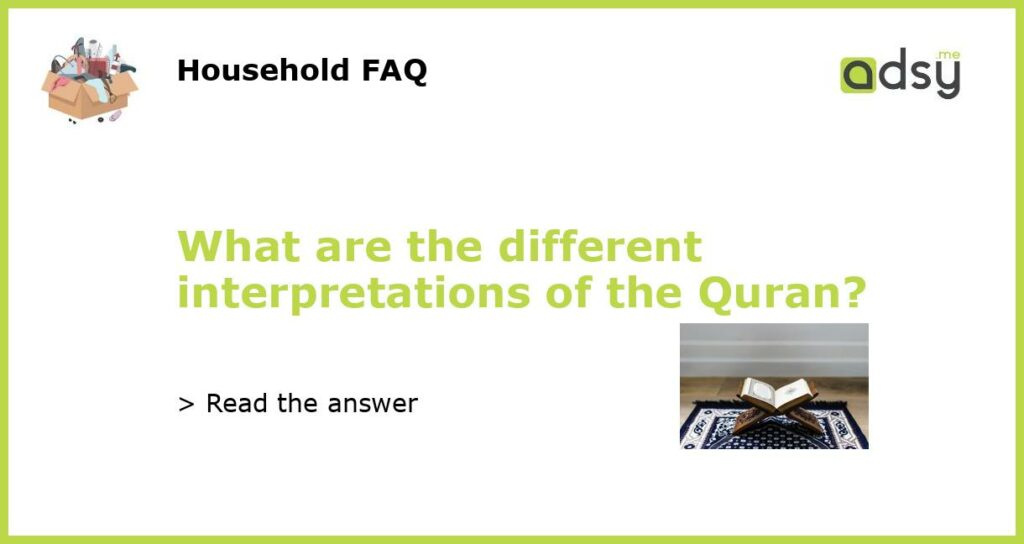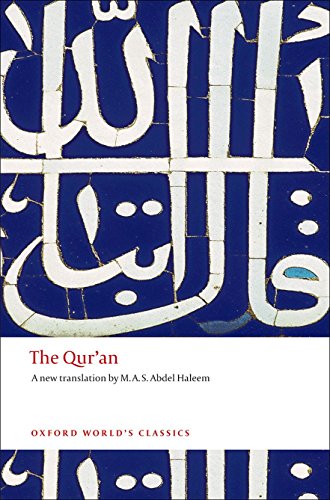Interpretation of the Quran from a Traditional Perspective
From a traditional perspective, the interpretation of the Quran is primarily based on the understanding of scholars and jurists who have studied the text in depth. These interpretations rely on the principles of tafsir, which is the science of explaining the meaning of the Quranic verses.
The traditional interpretation of the Quran involves looking at the specific language and context in which the verses were revealed. Scholars use various tools, such as linguistic analysis, historical context, and the teachings of the Prophet Muhammad, to understand the intended meaning of the text.
This interpretation is often seen as the most authoritative and widely accepted among the Muslim community. It is used to derive legal rulings, moral guidance, and spiritual insights. Many Muslims consider the traditional interpretation of the Quran to be the true and unchanging message of God.
Interpretation of the Quran from a Modern Perspective
In contrast to the traditional approach, the modern interpretation of the Quran takes into account the evolving social, cultural, and political contexts in which Muslims live today. It seeks to apply the principles and values of the Quran to contemporary issues and challenges.
Modern interpreters often emphasize the universal and timeless message of the Quran, focusing on its principles of justice, equality, compassion, and human rights. They argue that the Quranic teachings can be applied in diverse ways to address the complex realities of the modern world.
This interpretation takes into account new fields of study, such as sociology, anthropology, and psychology, to understand the Quran from a broader perspective. It encourages critical thinking and encourages Muslims to engage in dialogue with other religious traditions and intellectual disciplines.
Interpretation of the Quran from a Feminist Perspective
Feminist interpretation of the Quran focuses on challenging traditional patriarchal interpretations that have historically marginalized and oppressed women. It seeks to uncover the egalitarian and empowering message of the Quran and promote gender equality within Islam.
Feminist scholars argue that many of the verses in the Quran can be understood in a way that promotes gender justice, despite the patriarchal interpretations that have dominated throughout history. They highlight the cooperation and partnership between men and women in the early Islamic community as evidence of women’s rights in Islam.
This interpretation calls for a critical analysis of the social and cultural norms that have shaped traditional interpretations of the Quran. It advocates for the inclusion of women’s voices in the interpretation process and the recognition of their rights and agency within Islam.
Interpretation of the Quran from a Sufi Perspective
Sufi interpretation of the Quran focuses on the mystical and spiritual dimensions of the text. It seeks to uncover the hidden meanings and esoteric truths that are believed to be contained within the verses.
Sufi interpreters emphasize the importance of spiritual experience and direct communion with God in understanding the Quran. They believe that the text has multiple layers of meaning, from the literal to the symbolic and metaphysical.
This interpretation encourages contemplation, meditation, and a personal relationship with God as a means of understanding the Quran. Sufi interpreters often use poetry, symbolism, and metaphor to convey their insights and experiences of the divine.
Interpretation of the Quran from an Academic Perspective
The academic interpretation of the Quran involves the study of the text from a scholarly and objective standpoint. It relies on various disciplines, such as linguistics, history, archaeology, and religious studies, to analyze and interpret the Quranic verses.
Academic interpretations often approach the Quran as a historical and literary document, seeking to understand its origins, development, and textual variations. They explore the social, cultural, and political contexts in which the text was revealed and examine its historical reception and impact.
This interpretation does not prioritize religious authority or personal beliefs but rather aims to provide a comprehensive and objective understanding of the text. It encourages critical analysis, scholarly debate, and the use of evidence-based methods to interpret the Quran.






